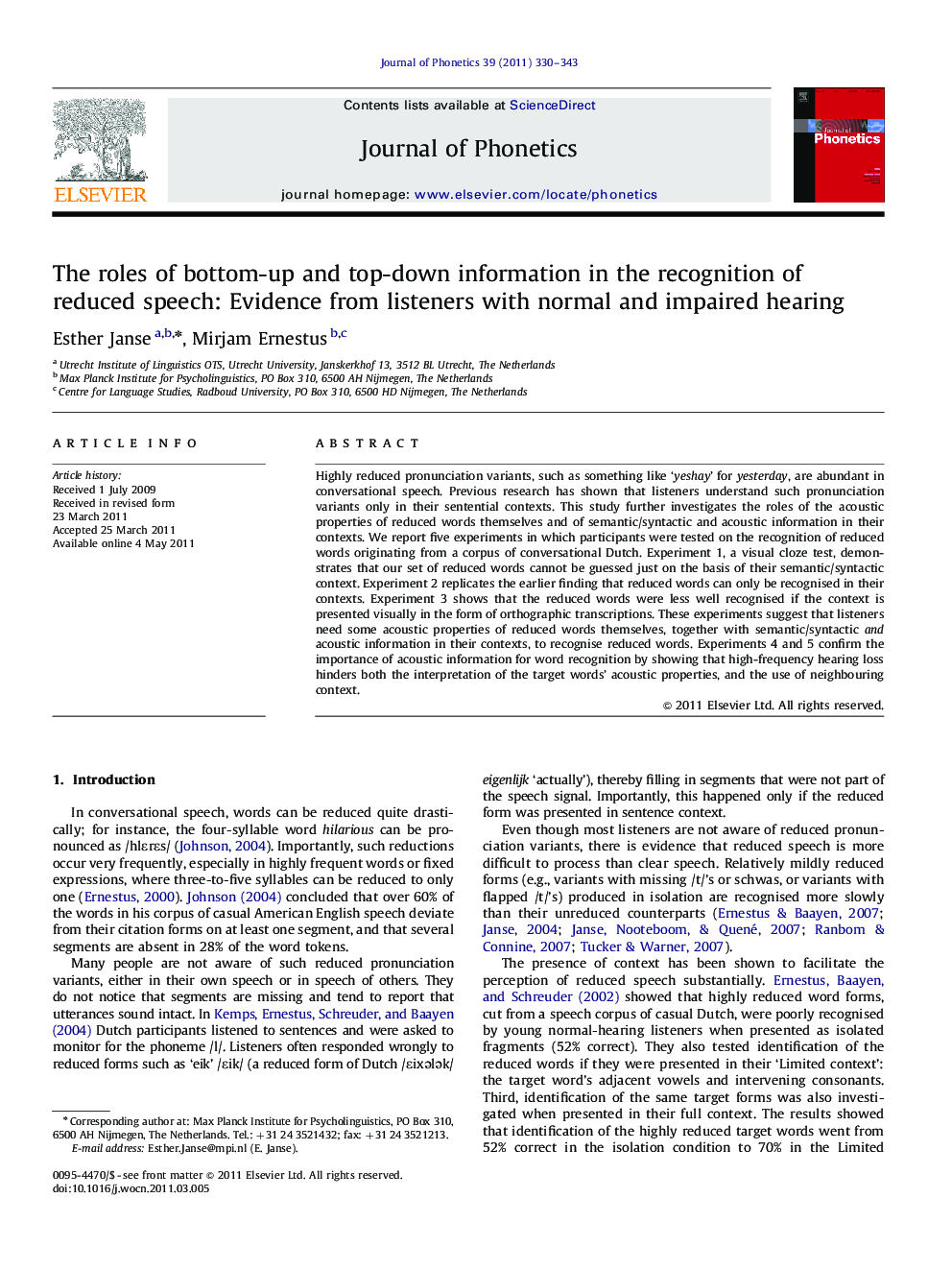| کد مقاله | کد نشریه | سال انتشار | مقاله انگلیسی | نسخه تمام متن |
|---|---|---|---|---|
| 1100996 | 953505 | 2011 | 14 صفحه PDF | دانلود رایگان |

Highly reduced pronunciation variants, such as something like ‘yeshay’ for yesterday, are abundant in conversational speech. Previous research has shown that listeners understand such pronunciation variants only in their sentential contexts. This study further investigates the roles of the acoustic properties of reduced words themselves and of semantic/syntactic and acoustic information in their contexts. We report five experiments in which participants were tested on the recognition of reduced words originating from a corpus of conversational Dutch. Experiment 1, a visual cloze test, demonstrates that our set of reduced words cannot be guessed just on the basis of their semantic/syntactic context. Experiment 2 replicates the earlier finding that reduced words can only be recognised in their contexts. Experiment 3 shows that the reduced words were less well recognised if the context is presented visually in the form of orthographic transcriptions. These experiments suggest that listeners need some acoustic properties of reduced words themselves, together with semantic/syntactic and acoustic information in their contexts, to recognise reduced words. Experiments 4 and 5 confirm the importance of acoustic information for word recognition by showing that high-frequency hearing loss hinders both the interpretation of the target words' acoustic properties, and the use of neighbouring context.
► We investigated auditory recognition of words in and out of their contexts.
► Words were pronounced with different degrees of reduction.
► Presenting words in auditory context is more helpful than in visual context.
► High-frequency hearing loss impairs use of auditory context.
Journal: Journal of Phonetics - Volume 39, Issue 3, July 2011, Pages 330–343